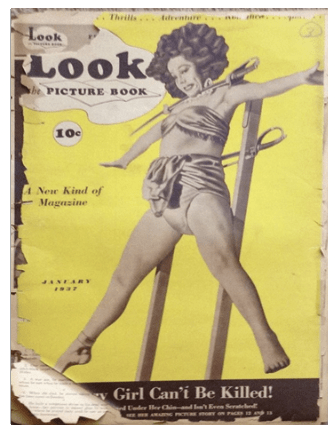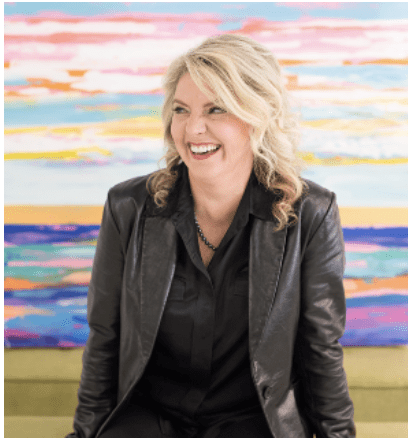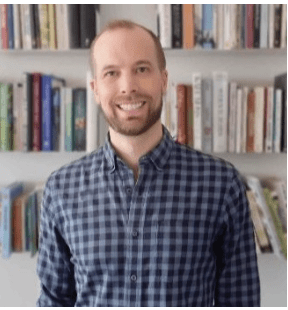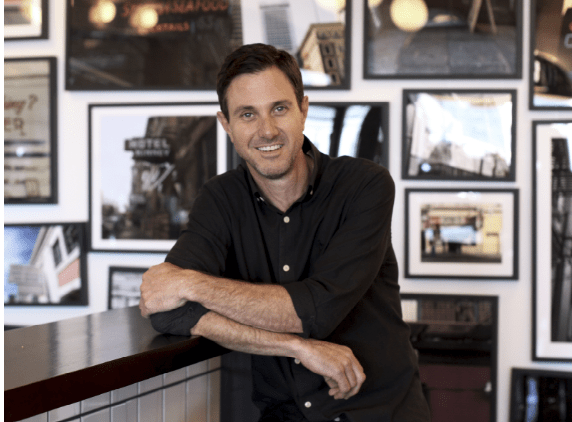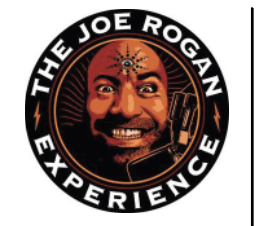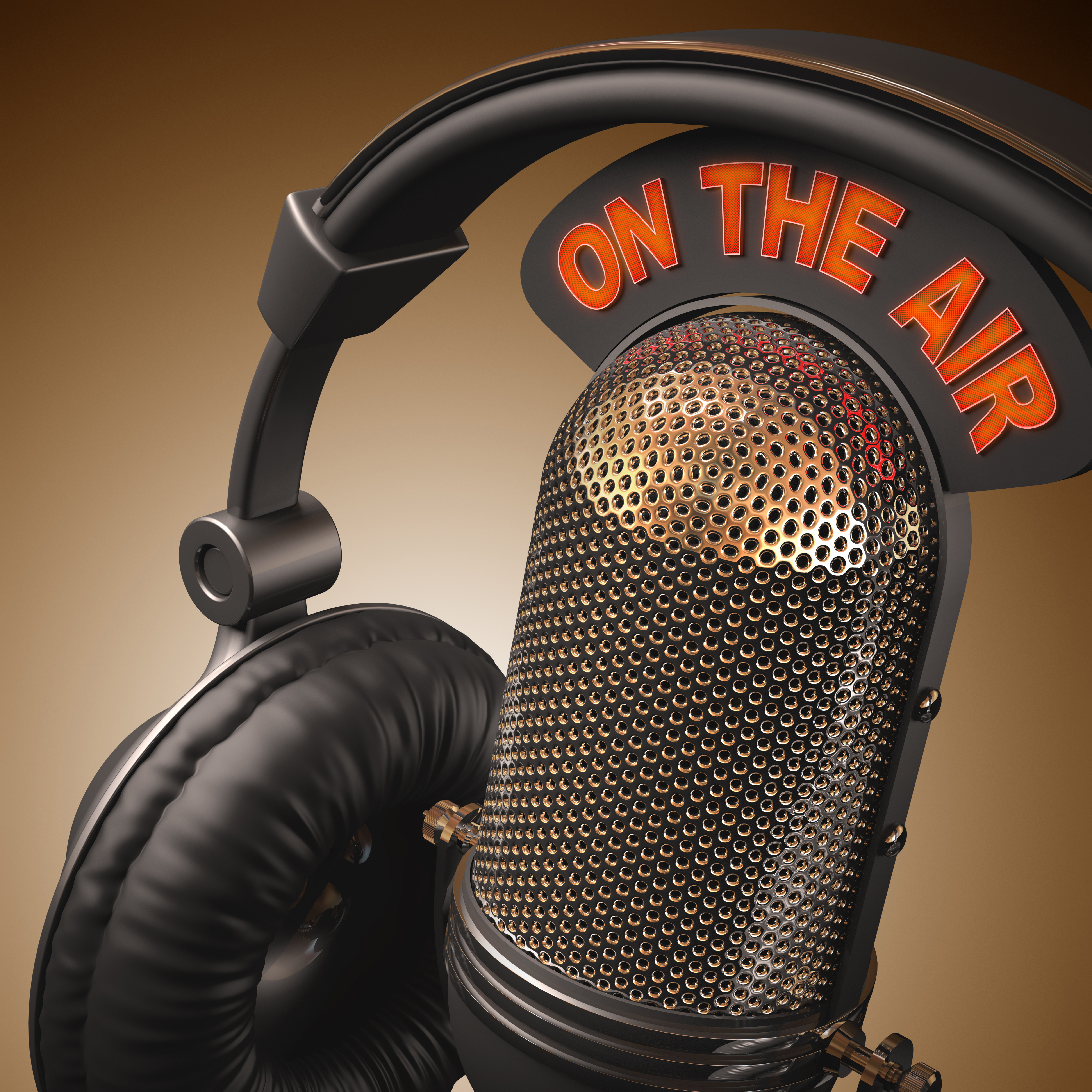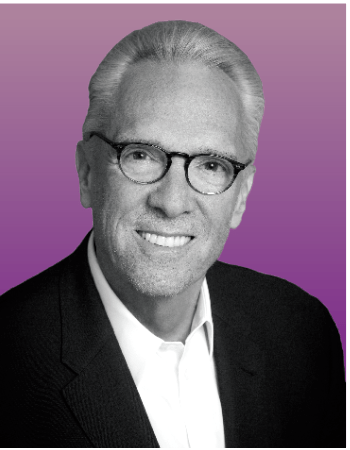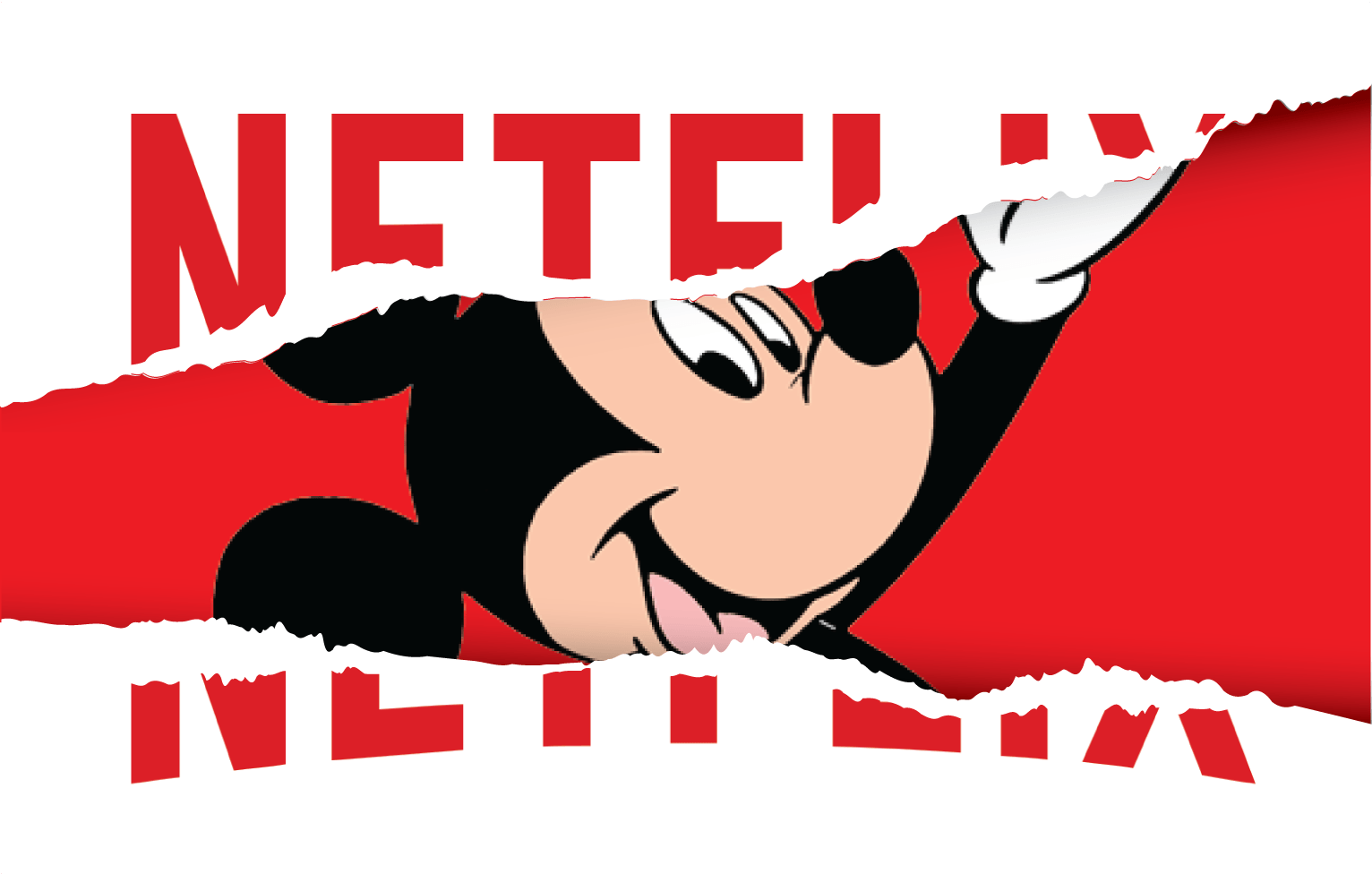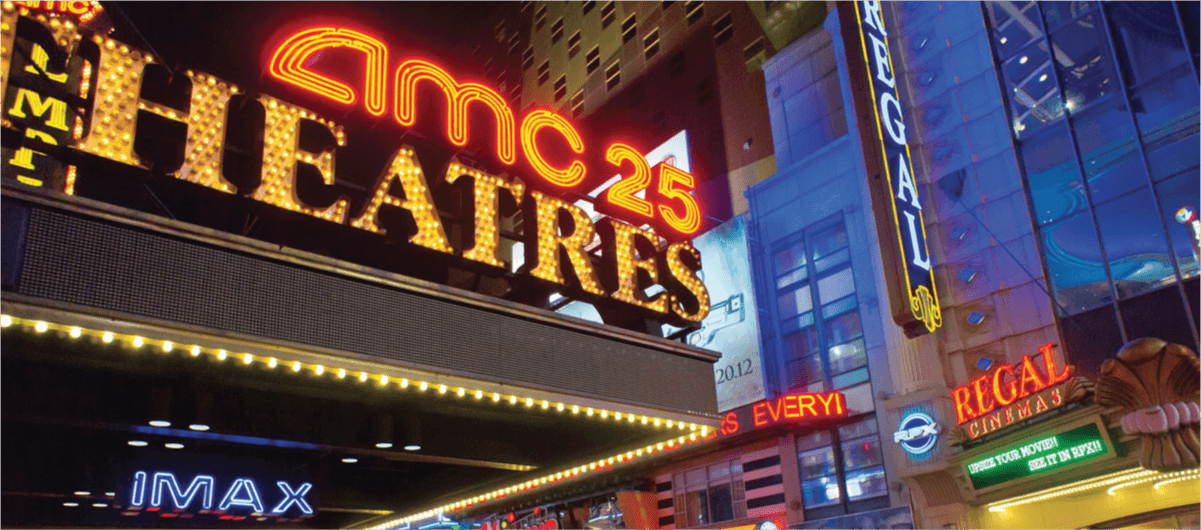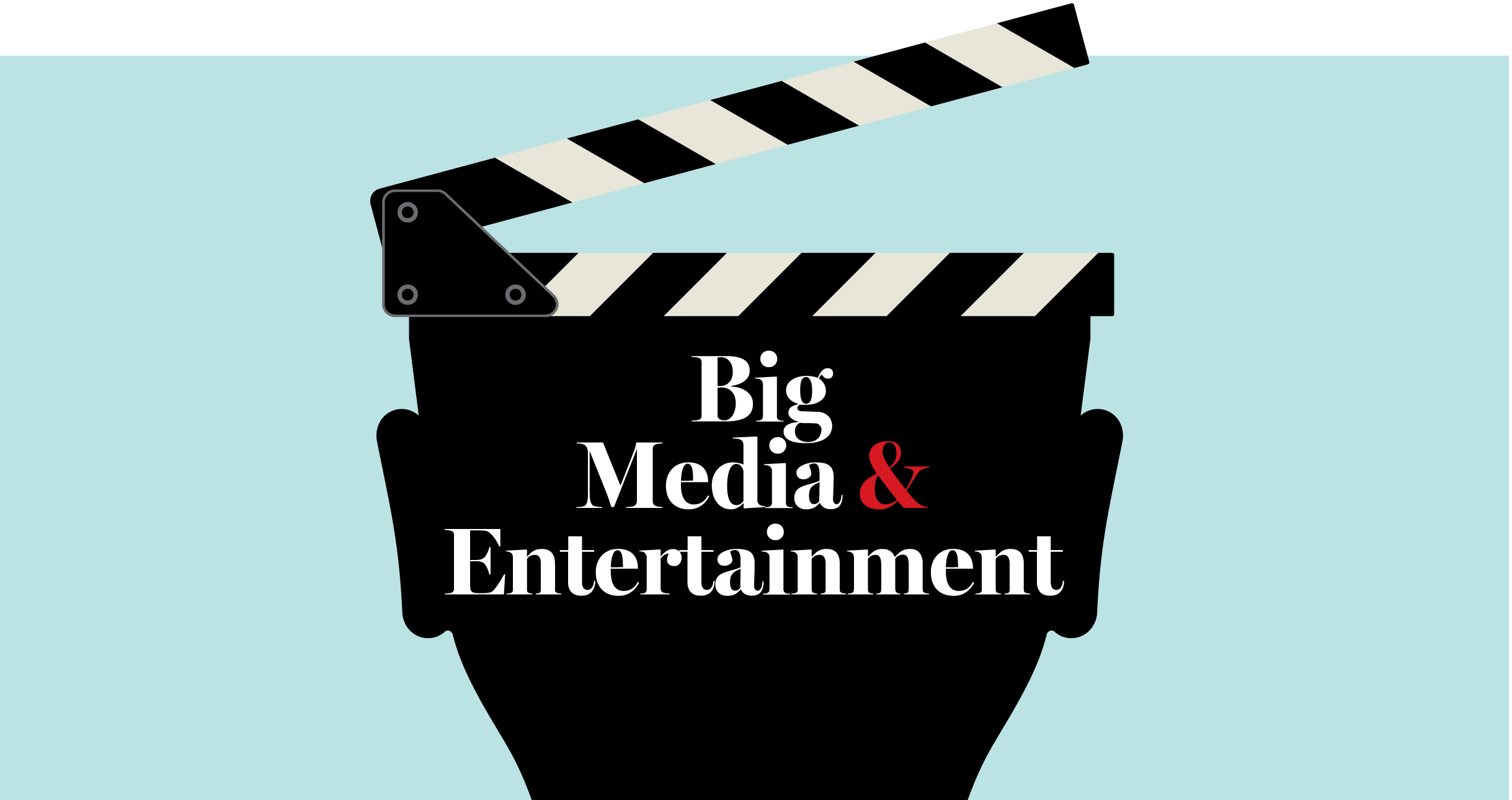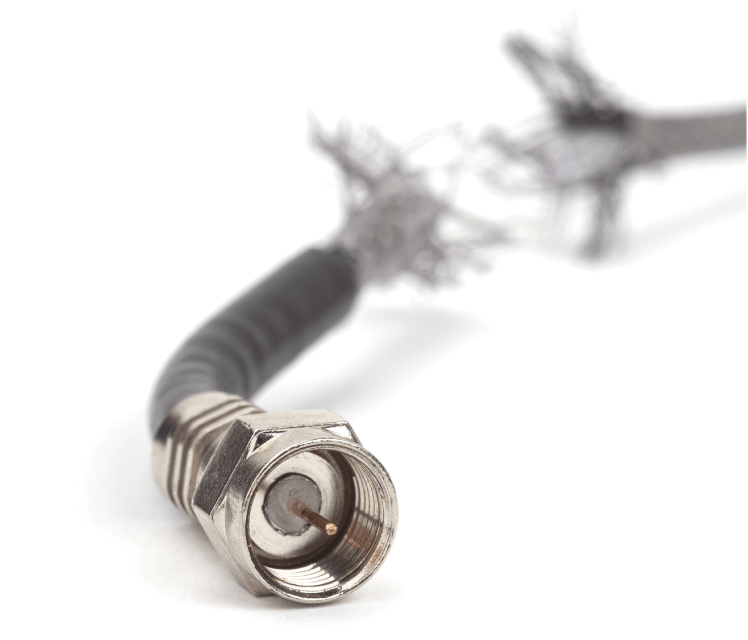Luckbox Leans in With Jordan Harbinger
Harbinger was dubbed “the Larry King of podcasting” when his show was the first podcast ever carried on satellite radio.
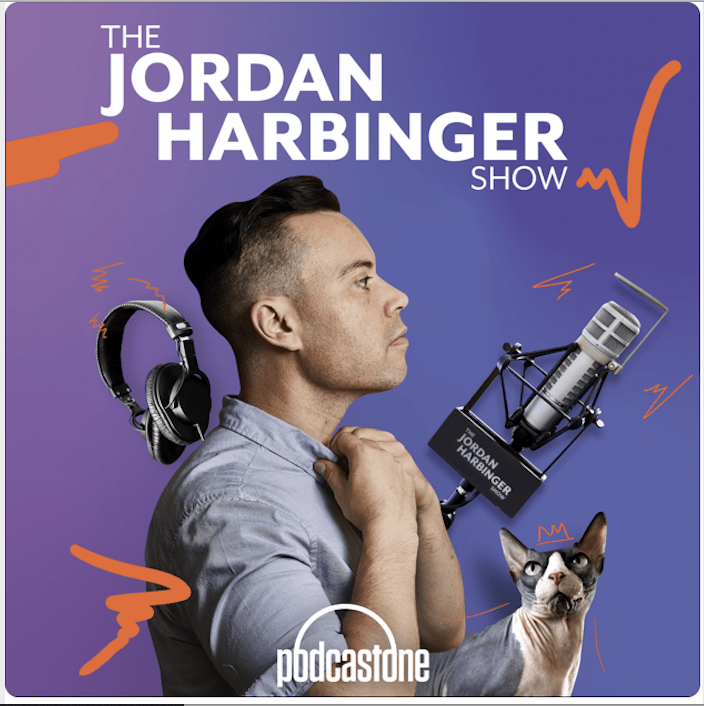
The Jordan Harbinger Show
4.9 stars
300+ episodes
Debut: 2018
The Jordan Harbinger Show provides a forum where the self-motivated can dig deep into the wisdom of the world’s sharpest minds. Harbinger explores the thinking of writers, creators, change-makers and intelligence operatives.
Luckbox Magazine: When did you launch your podcast?
Jordan Harbinger: This is my 14th year, or is it like 30? I launched in December 2006. Right now, we are getting 6 million downloads per month.
Luckbox: What’s the frequency of the podcast?
Harbinger Three times a week.
Luckbox: What caused you to become an early adopter in podcasting?
Harbinger: I wasn’t the kid who could naturally walk in and take a geometry test. I wasn’t the person who could simply outwork everyone. I saw this as a new option to get a competitive advantage that nobody else was even looking at. So, that’s what I did.
Luckbox: How did you start teaching students to network?
Harbinger: I then was tapped by the University of Michigan law school to teach networking to my fellow classmates because I got my job through networking. I talked to a friend of a friend who put my resume in the pile, and I got hired. It was kind of like, “How did this average student get an outside job on Wall Street with an outside salary?” I was the underdog who barely got into law school. My grades and scores were at the bottom for admissions.
Luckbox: Was the class a hit with students?
Harbinger: No one cared. At first, I thought it was a waste of time, but these two women kept showing up and learning and talking about these things. Sometimes we’d show up and the room would be locked, so I thought, I’ll just teach the class at the bar. Then my lessons went from get your business cards and type them into the computer and then follow up via email, to examining the body language of couples at that bar. I started to analyze nonverbal communication in the dating realm, and then women started showing up by the dozen. It became this cool class where I would break down male and female interactions for my students. It no longer was networking. Then, of course, guys would notice and started to show up to these little informal classes as well.
Luckbox: Then what happened?
Harbinger: Well, I kept repeating myself in the class because different people would show up to different classes. So I started making recordings of the basics of my lessons. Then I would burn them to CDs, which no one does anymore. Then I would give the CDs to these people, but the problem was that they come back next week and ask me for more copies for their friends or roommates or family.
Luckbox: How did you finance that?
Harbinger: Back then, CDs were $20 each, and these guys couldn’t get enough of it. But I thought, I’m not going to get rich selling $20 CDs that take me 40 minutes to burn. It’s just not going to happen. So, I was searching for a way to put audio files on the internet, and there just wasn’t anything. YouTube did not exist yet. There was no such thing as streaming music. None of that stuff existed.
Luckbox: What did you do?
Harbinger: A friend of mine told me about podcasting–this brand new thing. You upload an mp3 file to a server somewhere. Then you point to it and people who have iTunes and can download it. This was also back when there was no iPhone. The iPod was a relatively new thing. People could sync podcasts to their iPad or they could play it right from iTunes, which all of the students at this law school had. So, I put my show out there as a podcast and I thought this is going to be good for like 20 episodes, and then I’m going to run out of stuff to say. But, I didn’t. It’s been 14 years and it went from talking about dating and relationships and psychology and nonverbal communication to every crazy story.
Luckbox: There are only so many hours in the day. Where are these hours coming from? What are people spending less time on so that they time for podcasts?
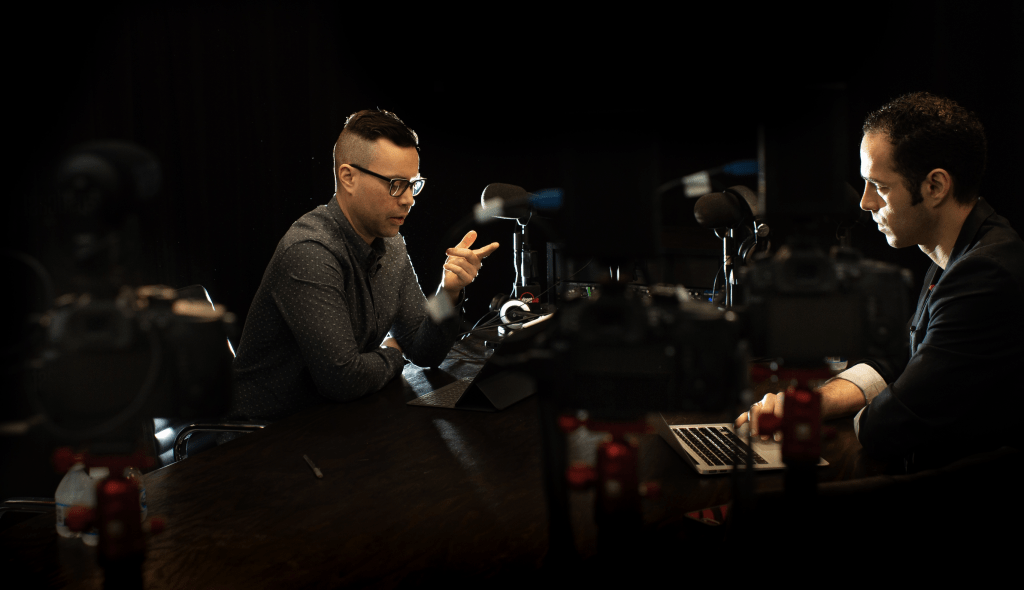
Harbinger: That’s a great question. No one in my generation is listening to the radio. And I’ve got a survey that says that 94% of our audience is college educated. I think 96% are employed or retired. Most of the people who listen to podcasts every week listen to no radio or virtually no radio. It’s the same group of people who say, “Oh, I don’t have to watch commercials on TV—I can just go on Netflix and everything I want is there and there are no ads. And it’s $10 and doesn’t ruin the entire experience? Great. I’m going to sign up for that.” So, cord cutters are listening .
Luckbox: That makes a lot of sense. You’re probably dead on with that.
Harbinger: When I started the show, my audience was this underground group of—I don’t want to say geeks because they weren’t all geeks—but some of our first listeners were people who said, “This is useful in a way that other things are not useful.” We didn’t expect an international audience. I expected a local Ann Arbor, Mich., audience that I told about the podcast as a learning resource.
Luckbox: So the reach came as a surprise?
Harbinger: When we saw we saw downloads coming from South Africa, I said, “Well, that’s a weird mistake.” So, I emailed GoDaddy, and they said, “No, no, you’re getting connections from all over the world: South Africa, Europe.” I wondered how would they have found my show? I asked a friend of mine who worked at Apple, and he told me that the podcasts were in a directory people could browse. It was 2006 so there were only about 1,000 podcasts. So, people would navigate in the text only directory that was iTunes, and they would subscribe.
Luckbox: Did having an international audience affect the show?
Harbinger: This guy’s consistently downloading the show from South he wasn’t in a big city—not Johannesburg and not Cape Town. So, I asked on the show who’s downloading us from South Africa, and this guy writes back. ‘I’m a game warden,” he says. “We have no radio in the park because it’s hundreds or thousands of square miles. I’m looking at rhinos and giraffes, and I’m looking for poachers. I have a CD player, but how much music can I take?”
So, he burned the shows to a CD and then drove around in his jeep. I thought, what a weird scenario where I’m burning CDs in Ann Arbor, Mich., uploading files to the internet, and he’s downloading them in South Africa, burning them to a CD and driving around, looking at giraffes. So that was for me, like, “Holy cow. This is a thing that is so powerful and nobody gets it yet it.”
Luckbox: Your overview of the last couple years in podcasting?
Harbinger: The last few years have been great for podcasting because you’ve seen the Spotify money go into pod cash. That’s cool. You’ve also seen acquisitions that normally people wouldn’t even care about, like Stitcher being bought. It shows there’s the investment in it. But also creators who normally wouldn’t give a crap about something like podcasting are creating podcasts. And then they’re creating more and then they’re creating more and they’re creating more.
Luckbox: Like Conan O’Brien?
Harbinger: Conan O’Brien has a podcast. Why? Three, four years ago, if someone told Conan, “Hey, you should get a podcast.” He’d be like, Why would I do that? I have a TV show. What’s wrong with you? Why would I bother doing that dumb hobbyist thing that no one cares about? That only losers do. You know, this is I’m not a tech nerd. I’m Conan O’Brien.” Now he’s got a whole network of shows and he’s probably making more money doing that than he was making doing pretty much anything else other than his flagship program. And you see this a lot.
Luckbox: Is narrative replacing talk shows in podcasting?
Harbinger: Storytelling shows work like old-timey radio shows. That didn’t exist in podcasting. It was interviews and people’s random personal journals with things like, “Today, I went and ate a salad.” It was blogging. Now, you’ve got people who produce TV saying, “Well, we’re done with Season 10 of Family Guy, let me do this podcast for a while.”
Luckbox: People like that are bringing big money into podcasting.
Harbinger: They produce something that costs 200 grand, which is a huge amount of money for any hobbyist, but for a studio that was like their catering budget for August. They don’t care about dropping it. So, you see people in Hollywood going, “You mean we can run and prototype 25 screenplays for 100 or 200 grand each instead of spending $5 million doing a pilot and then another episode or intro season?”
Luckbox: How is that changing the industry?
Harbinger: Podcasting is the great equalizer in a lot of ways. If you’re Conan O’Brien, you’re an A-list celebrity. Yes, you’re going to get a show that gets a million downloads per episode because you’ve got a massive social media following. You’ve got a massive television following. You’re one of the most famous people in the world. At this point, sure, you’re going to launch a podcast and it’s going to do great.
But, Amy Schumer, a comedian who by all accounts is making millions of dollars a year just doing tours and movies, did a podcast and no one cared. I mean, nobody. They couldn’t pay you to listen to that thing. It failed. It was a big stinker.
Luckbox: So fame isn’t everything?
Harbinger: You can’t just be like, “I’m a famous social media influencer, and I have a podcast now.” The podcast world is littered with the bodies of peopole who has 500,000 or 2 million Instagram followers and then start a podcast and the advertisers are seeing no conversion. They quit after two months because you can’t just show up anymore.
People like me who know how to make a show will crush you. We will do so much better than you do because we have an audience that actually wants to sit down and listen for an hour. if you’re Snooki from Jersey shore and you’ve got a podcast, no one cares. I don’t want your opinion. I want to see you jump into a pool and that’s it. Even if I was a huge fan of those people, I wouldn’t want to hear them talk for an hour. I want to see them embarrass themselves by drinking too much.
Luckbox: Engagement metrics—which ones matter?
Harbinger: I’m looking at downloads over a set period of weeks, like 10 weeks, to see if my show, slowly but surely, is growing because that means I’m doing right by my current audience. But it also means they’re sharing it, hopefully. And that’s important because you can really screw up your relationship with somebody who listens to you for three hours a week—like it’s really easy.
All you have to do is sell too much or be a little too boring. Not keep you’re A-game sharp. Somebody else can come along, and if they’re just a little bit better and a little bit more interesting and a little bit more entertaining, it’ll be see you later. And that’s it.
That’s extremely important to note. So, I’m very careful with my influence and very careful with my engagement. I reply to all my emails, I reply to social media requests and messages. But one thing that I measure is my audience growing over time—not like a day-to-day. I really am talking about things that I can be proud of or that I’m interested in. Because there’s no point in having a creative pursuit that you hate and think is boring.
Luckbox: What’s ahead for podcasts? Is there a next big thing?
Harbinger: It can continue to grow. At first I was kind of worried about that, but then I read that something like 30% of Americans listen to podcasts. Every month, not even every week, like every month. And that like 97% of Americans listen to the radio. And I’m thinking, it’s the same audience? Well, you can bring podcasts on your phone in your car. You may not have Bluetooth, but that’s going to change pretty soon unless you’re driving in 1998 Ford Taurus.
I’m in Silicon Valley, so maybe I’m skewed, but in half the cars I know of you play the music from a freakin’ touchscreen in the car and it’s got Spotify. So, you can play shows. That’s growing.
Additionally, if COVID-19 has taught us anything about radio, it’s that you can certainly live without it. No one’s listening to the radio at home, and podcast consumption is going up. Also, I don’t expect people to get back into their cars and go, “Good, I’ve missed hearing 8,000 commercials for subprime mortgages.” They’re going to go, “This sucks. I was at home and I didn’t have any ads.”
Luckbox: And smartphone adoption is increasing. But did you notice a dip in podcast listening during the the early days of lockdown?
Harbinger: Yeah, I saw the dip. And I saw the recovery. I mean, it’s hard for me to say my show has more than recovered. But does that mean the entire industry has bounced back? I have no idea. Initially it was very dependent on platforms. My apple downloads went down a touch, like 10% or 15%. My Spotify downloads went down by 40%.
Some of that is because Spotify is drier and more casual. It’s like, “Oh, I listen to music at the gym. And now I listen to podcasts, thanks Spotify.” But with podcast listeners, it’s more like, ”No, I have a podcast app, and I listen to podcasts at the gym and when I drive.” With Spotify, it’s, “What can I listen to right now?” People who download podcasts don’t miss them no matter what.
Luckbox: What else is ahead for podcasting?
Harbinger: I see more adoption in the pipeline for sure. I also see that older people, like my Boomer parents, are starting to listen on the website. But then my dad will occasionally ask me how to get something on his phone or how to share something with his friend. And I get a lot more emails saying, “I know I’m not your core demographic. I’m a 62-year old female from Wisconsin.” You’d be surprised how many 62-year old females from Wisconsin are listening to podcasts.
Podcasting is going to grow because you see it growing in Africa, and you see it growing in Europe. The United States is typically ahead when it comes to this, but we’re only at a third. There’s some data that said last year that 78% of Americans knew what a podcast was. There are still people who don’t even know what it even is. And find an American who doesn’t know what radio is. There isn’t one.
So, there’s a lot of upside now. It doesn’t mean they’re all going to listen. A friend of mine bought a truck and he posted it on Facebook. I thought, “Who’s buying a truck with Wi Fi? But it totally makes sense. I asked if he had Satellite Radio and he says not anymore.
Luckbox: The numbers show satellite radio has peaked.
Harbinger: I used to have my show on Sirius XM for a stint while I was living in New York as an attorney. I did my podcast on satellite radio. We were the first podcast ever on satellite radio. No kidding. In fact, that’s how I ended up with the nickname “The Larry King of podcasting.” People said, “Oh, you’re a talk show host, but you also have a podcast—you’re the Larry King of podcasting.” It was kind of an inside joke. It’s serious.
Anyway, my point was what the CEO of Sirius XM did back then. I did some promo video, and I said something about, “Check out my show,” and I was holding my iPhone in my hand. They made me redo the video because Apple is a competitor to Sirius XM. I said, what you need to do is get an app for smartphones so people can stream satellite radio, but they didn’t do it back then.
Then years later, they finally did it and they charged extra for that feature. Now they’re buying podcast companies. I mean, there’s a reason for that. They saw the writing on the wall—but, as usual, way too late because they’re a radio company.
They should be streaming premium podcasts or other data using their satellites, or they should just sell those satellites and produce shows in-house. I mean, you don’t need satellite, the people who listen to that no longer need it. You don’t need to talk about technology that’s already obsolete.
If you’re on a boat and you need data, cool; I guess you’re going to be able to use Elon Musk’s satellites at some point. And if you’re in northern Canada, and you’re digging up oil sands, fine. You need satellite radio.
Luckbox: Any advice on what works best in podcasting?
Harbinger: The jury’s still out. With radio, it was talk shows and music. But with podcasting, we’re seeing narrative storytelling that hasn’t existed in radio since probably 1940, right? The War of the Worlds was l one of the last great radio plays.
That was a long time ago, and then they fell out of favor because of television. And now people are saying, “Why am I going to watch TV? I got a life.” With a podcast, you can talk about something you want—you can really differentiate yourself. If you collect leather handbags, you could do a show on that. You’re not going to be the next Conan O’Brien with your leather handbag show, but I bet you could get a few thousand listeners.
It’s just like YouTube in that there’s room for every niche. The downside to podcasting is there’s no algorithm like on YouTube. If I search for “leather handbag,” I get 8,000 reviews in a playlist and the leather handbag show comes on, and there are some pranks involving leather handbags.
With podcasting, we don’t have that. But that’s also an advantage. There’s nothing that you have to do. Nobody talks about this. There’s nothing you have to do to trick the Apple algorithm into playing your show because there is no algorithm that plays your show next. It’s just a matter of people finding you and sharing you so that, for better or for worse, that means that nothing goes viral.
A lot of famous people with shows are doing okay, but it’s mostly a meritocracy. Going back to my great equalizer comment—even if you are a huge celebrity, your audience is yours to lose. If you’ve got a huge name, and you come in and do a show that’s terrible, you will not retain your audience. There are too many options. They might still follow you on Instagram, and they might still follow you or your 10 second YouTube vignettes. They might watch your show on TV, but they are not going to listen to you for an hour
But if you’re a smart Lex Friedman-type kid, you don’t have to be an influencer. You don’t have to be rich and famous. You just start talking about things you know about and dot-dot-dot, 1.4 million listeners later you’re making 50 grand a month, or whatever he’s doing
Luckbox: Have you been a mentor to young podcasters?
Harbinger: I have. And I regularly speak at podcasting events. And I’m very blunt about what doesn’t work because I don’t sell one of my unique positions. I don’t sell podcasting courses, and I don’t sell podcasting advice. So, when someone says asks me to speak at an event, I don’t see it as a money-making opportunity. I can be really honest because I don’t have a conflict of interest. And I’ve been in the industry for so long that I dare somebody who’s been in the industry for two years to argue with me about data.
Luckbox: What’s one of your favorite episodes?
Harbinger: Frank Abagnale from Catch Me If You Can. He was Episode 1 of my new show, The Jordan Harbinger Show,and he and I talked about psychology and how he used people’s psychological triggers to get away with being an imposter.
Luckbox: What about podcasts outside of yours?
Harbinger: There’s Making Sense with Sam Harris. He’s huge. And then there’s also—this is right up your alley—The Knowledge Project with Shane Parrish. He’s a former Canadian intelligence officer. And his audience is hedge fund investors and really, really smart folks.
There’s some obscure stuff. There’s one called Conflicted, and it has two hosts. One is a former Jesuit priest, and the other is a former Al-Qaeda poison-maker and bomb-maker who’s now an anti-terror investigator. His cover was blown by Dick Cheney’s office. They talk about everything from world events from an the perspectives of espionage spying, terrorism, financial crime religion. And they’re both just so smart.
Luckbox: When should podcasters feel they’re getting enough downloads that they’re actually in the game?
Harbinger: It depends on your goals. If you’re trying to generate ad revenue, you know you want. Otherwise, the way I always explained it is imagine everybody in one room. If you’ve been at 3,000 downloads for five years, go to a dance club and there are maybe 1,800 packed wall to wall in that giant venue. You couldn’t even move and couldn’t even breathe. That’s less than the number of people who listen to you every time you turn on your home office microphone and ramble, right? You’re doing OK.
Luckbox: With our podcast, The Political Trade, we’ve done our 19th episode and today we hit 20,000 downloads.
Harbinger: That’s great. How many people fit in Madison Square Garden, right? Podcast numbers are deceptive because you don’t hear anything. If you were to have an active social media following of that same number of people, you’d have to hire a team just to reply to all the comments you get on the posts. You would never be able to do anything without getting 100,000 notifications on your phone. So, I look at it like that. One in 1,000 people emails you. Most people would never think to reach out to somebody that they listened to on the internet, right? How many times have you emailed your favorite radio talk show?
Luckbox: Yeah, that’s true. And we do get emails, but it’s so narrow. It’s kind of a wonky podcast because it’s about how to trade for profit in specific markets. I’m a trader and I have that financial background, so I add real value. And I’m a political wonk so I know that content. But podcasting is a whole different art.
Harbinger: Exactly. It’s a fun thing that you should do. I mean, look, it’s all about fun. The first six years I was doing a show, there weren’t metrics that were any good for podcasting. I’m thankful for that. Because if I looked at my metrics and saw that I had 7,000 downloads over eight months—or how long it took to get to 1,000 downloads—I probably would have packed it in.
Now, if I get 6.1 million a month I’m happy, but then if it dips to 5.9 because of coronavirus, my life is over and the business is gonna crumble. Why do that? So, I try to look at the metrics to make sure things are healthy, but I try not to obsess over them because that’s what happens with these YouTubers. That’s why people who you know you used to interview neuroscientists on their YouTube channel now are having an out-of-work comedian come on the show.
Why are they doing that? Because there’s more search volume or whatever for that guy’s name than there is for Lex Friedman. And I’m like, “Wow.”
With podcasting, you have the luxury of just doing what you are interested in, and your audience will sort itself out. That’s good. That’s the beauty of the medium.
